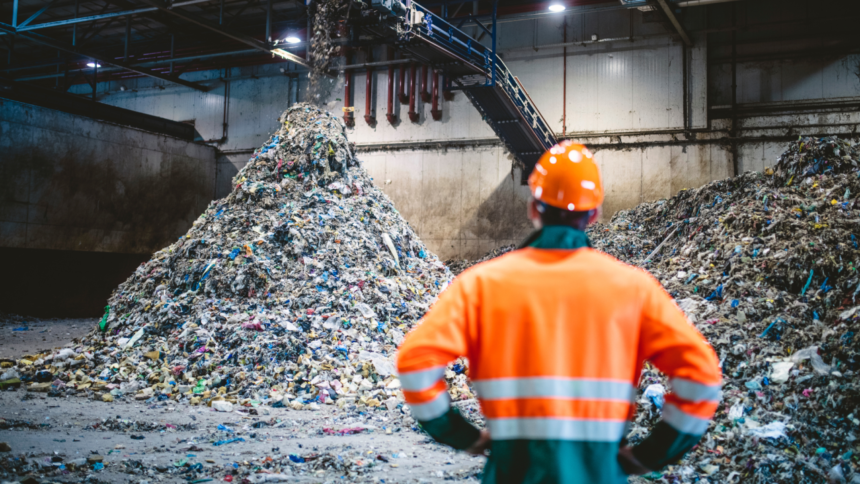Effective waste management is crucial today as communities and businesses strive to balance growing consumption with environmental responsibility. Managing the growing amount of waste while reducing its adverse environmental effects is challenging. Businesses and municipalities constantly explore solutions to reduce waste and lower carbon footprints, from recycling programs to innovative disposal methods. Sustainable waste management practices help protect natural resources and promote long-term environmental health.
Many organizations use advanced tools and systems to enhance efficiency and achieve this balance. One such solution is waste compactor rental, which provides an efficient way to compress and manage waste, reducing the frequency of pickups and the overall environmental impact. By incorporating such solutions into their waste management plans, businesses can optimize operational efficiency and contribute to a more sustainable future by minimizing the volume of waste sent to landfills.
The Importance of Efficient Waste Solutions
The importance of adopting efficient waste solutions cannot be overstated in today’s society. As urban spaces expand and populations grow, the volume of waste continues to rise. Without effective waste management, landfills overflow, leading to increased pollution and health risks. By implementing efficient waste solutions, such as waste segregation, recycling, and composting, communities can effectively reduce the strain on landfill sites and minimize environmental damage.
Effective waste management also decreases greenhouse gas emissions. One potent greenhouse gas contributing to climate change is methane, released when organic waste decomposes in landfills. Emissions are drastically reduced by diverting organic waste to composting facilities, contributing to global efforts to mitigate climate impacts. This underscores the pivotal role efficient waste management plays in environmental preservation and achieving broader climate action goals.
Technological Innovations in Waste Management
Technology is continuously reshaping the landscape of waste management. Recent technological advancements have led to the development of intelligent waste bins equipped with sensors that detect waste levels, providing real-time data to optimize waste collection routes. Automated waste sorting technologies leverage artificial intelligence to efficiently sort and process waste, significantly increasing material recovery rates and reducing contamination.
These innovations can elevate the efficiency of waste management systems across various sectors. Integrating digital solutions in waste management reduces operational costs and promotes data-driven decision-making, further enhancing system efficiency and sustainability.
Economic Benefits of Sustainable Practices
Adopting sustainable waste management practices provides substantial economic incentives. For businesses, these practices often translate into cost savings through reduced waste disposal fees and increased efficiency in resource utilization. Moreover, companies that employ sustainable practices tend to attract environmentally conscious consumers, enhancing brand loyalty and overall market competitiveness.
The move to sustainable waste management greatly aids larger-scale job generation. As the recycling and waste management industries grow, trained personnel are required to oversee and apply these novel technologies and procedures. Sustainable practices are crucial in bolstering national and local economies by fostering job growth and creating new economic opportunities.
Impact of Waste Solutions on the Environment
The use of effective garbage solutions dramatically impacts the environment. Effective waste management aids in preserving natural resources by allowing for the reuse of items that would otherwise require the extraction of new materials. Recycling and waste-to-energy initiatives lower carbon emissions, supporting global efforts to combat climate change.
Moreover, sustainable waste management supports ecosystem health by reducing pollution and safeguarding biodiversity. Reducing landfill usage prevents leachate—a toxic liquid formed when waste decomposes—from contaminating surrounding environments and groundwater. These positive environmental impacts reflect the essential role that sustainable practices play in maintaining ecological balance and promoting healthy, thriving ecosystems.
Future Trends in Waste Management
Looking to the future, waste management trends are likely to align closely with technological advancements and sustainability imperatives. Emerging trends suggest a continual rise in automation, where AI and machine learning technologies will predict waste trends and automate processes, improving efficiency and resource recovery.
Furthermore, as societies become more aware of climate issues, the drive for circular economy models—where waste becomes a resource loop instead of an end product—is intensifying. Embracing these trends offers the promise of more sustainable urban environments and reflects a commitment to ongoing environmental stewardship.






